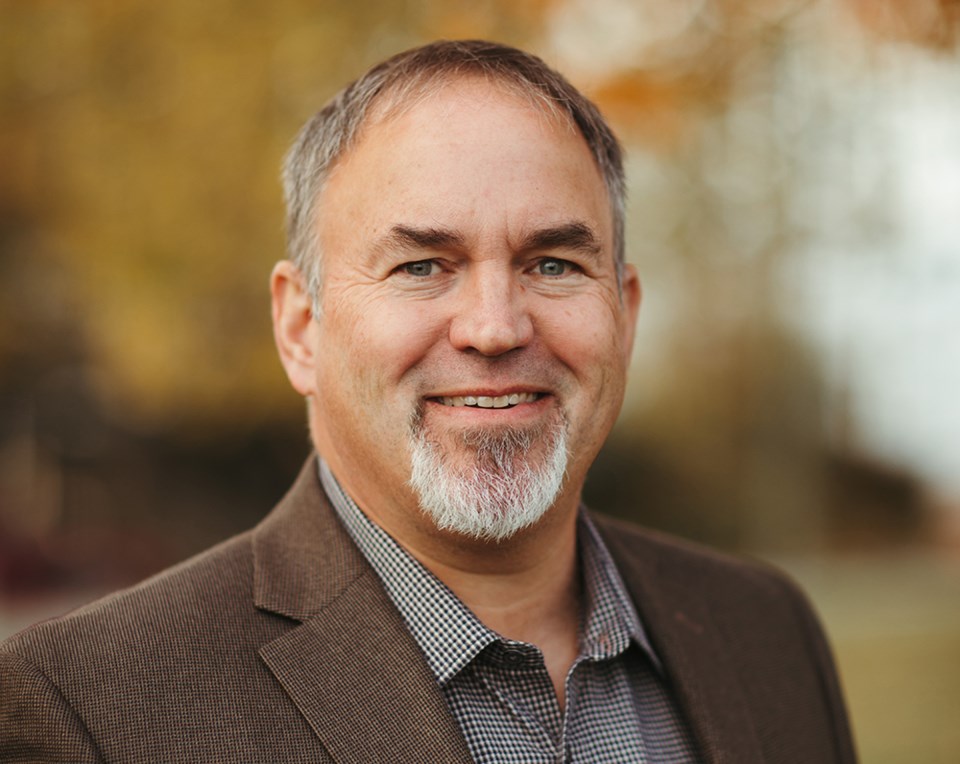qathet Regional District (qRD) Electoral Area C director and board chair Clay Brander has suggested using regional district and City of Powell River growing communities fund money to help pay for the new resource-recovery centre and waste-transfer station.
At the May 3 qRD finance committee meeting, Brander made a motion that the committee recommend the regional board send a letter to the city requesting that it consider partnering with qRD in an effort to reduce long-term borrowing associated with the project, by contributing an equitable portion of the city’s growing communities fund. The province has allocated nearly $1.4 million to qRD and $4.2 million to the city through the fund to help underwrite infrastructure projects.
Brander distributed a document to finance committee members, providing a breakdown of what he was proposing, with two options. The first option, using a formula of $30 for each municipal resident and $1,000 for each new municipal resident, based on 2021 population figures from the census, would result in a city contribution of $851,720, if the city chose to make such an allocation. He said the second option would add a flat amount of $500,000, which would make for a contribution of $1,351,720, nearly comparable to the $1,367,000 that qRD received from the growing communities fund.
“The municipality receives a little more than $4.2 million and the qRD receives $1.367 million,” said Brander. “My proposal is that the qRD give the entire amount we receive, and the city would have one of two options.”
Brander said with option one, with borrowing at six per cent, taxpayers would save $3.1 million in interest over a 30-year amortization period. With the second option, the interest saved would be $3.9 million, “which I think would be pretty significant.”
“The resource-recovery centre, being part of the solid waste management service, is one of the few regional district services that financially affects every property owner in the qRD,” said Brander. “The City of Powell River is within the regional district, so every dollar we save in interest is reflected in everybody’s taxes.”
Brander said the growing communities fund money was a windfall, and instead of putting the money toward disparate projects that will affect small percentages of the qRD population, when partnering with the city, it would affect every single property owner.
City director Cindy Elliott said while she understood the numbers and benefits of the recommendation, the city is currently conducting strategic planning and is not considering where it will be spending the growing communities fund yet.
“I’m also aware that the city is under incredible pressure for spending money on things we are not getting help with from the regional district, including the recreation complex, where the regional district contributes to operating costs but not the building being upgraded,” said Elliott. “I know that agreement is up for renewal. The city is going to have a lot of projects on the table for this money.”
Electoral Area B director Mark Gisborne said for a shared service such as the resource-recovery centre, he would like to see funding from the municipality because the service benefits everyone.
“The city owns the land; the regional district is leasing it,” said Gisborne. “It was a city liability for many years and the regional district has taken on remediating the site.
“If the regional district hadn’t remediated the site, it would be a big liability still on the city’s books. I believe having some equitable cost-sharing with the municipality and the regional district is a good place to start our conversation.”
City director George Doubt said the numbers proposed by Brander are interesting, but there is no commitment to use regional district funds to pay down the resource-recovery centre borrowing.
“The resource-recovery centre is a regional service which is paid for by the regional district,” said Doubt. “The taxpayers of the city contribute more than half the funds to that project. The city is also building a road and providing services at considerable cost. I prefer to keep those things separate.”
Doubt said the proposal was asking city taxpayers, who are already paying for the centre, to pay more.
“The city has a huge infrastructure deficit and all kinds of major projects,” said Doubt. “I would have liked to have seen it come with an actual dollar value commitment from the regional district, but I’m not in favour of asking the city to pay more than it is required to do.”
Brander’s motion carried, with Doubt and Elliott opposed.



